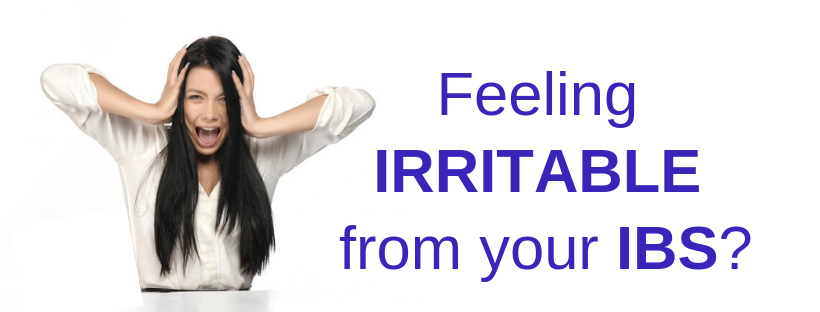Feeling irritable from your IBS?
What is irritable bowel syndrome (IBS)?
Irritable bowel syndrome is something we frequently treat here in GI, and is estimated to affect between 25-45 million people in the US. Of those who suffer from IBS, about 2 out of 3 are female. Irritable bowel syndrome is a chronic functional disorder of the gastrointestinal (GI) tract that can cause various symptoms, but is predominantly characterized by abdominal pain or discomfort and alteration in bowel habits.
Some people may experience frequent, urgent loose or watery stools (IBS-diarrhea) whereas others may have the opposite problem where they do not experience enough bowel movements (IBS-constipation). It is possible for patients to experience and alternate between both of these (IBS-Mixed).
Associated symptoms include abdominal (belly) pain, stomach cramps, bloating and gas. The exact cause of IBS is still unknown; however we do know that there are several things that can worsen symptoms of this disease including certain foods, stress, anxiety, and depression. Luckily, IBS does not cause lasting harm to the bowels and does not lead to cancer. You may hear other terms used for IBS including spastic colon, irritable colon, nervous bowel or visceral hypersensitivity.
Of note, IBS is different than IBD (Inflammatory Bowel Disease). IBD is a condition caused by either Crohn’s disease or Ulcerative colitis. If you are not sure if you have this, then please speak with your doctor.
Is there a specific test for IBS?
Unfortunately, there is not a test to specifically test for IBS. A diagnosis is usually made by speaking with your gastroenterologist physician or physician assistant (PA) about your symptoms, and sometimes may require additional testing with blood work, imaging, or colonoscopy.
What are the treatment options available for IBS?
There are several different treatment options for IBS including lifestyle/dietary modifications and medication management. IBS is a chronic condition and although there is no cure for it, our goal is to try and help manage the symptoms and provide our patients with more “good days” than “bad days” caused by IBS.
Lifestyle changes may include:
- Ensure that you are exercising or being active for at least 20 minutes about 3 to 5 days per week
- Stress management
Dietary modifications may include:
- Keep a food diary and document if you experienced any symptoms in relation to the food consumed (stomach cramps, urgent trips to the bathroom, bloating or abdominal swelling)
- Try to limit foods that you know trigger upset stomach and gas, work on cutting back on dairy products such as milk or ice cream
- Patients with IBS-Constipation may need to increase their water and fiber intake
Medication management may include:
- Medicines to ease diarrhea
- Medicines to ease constipation
- Medications called “anti-spasmodics” to reduce stomach cramps
- Antidepressants – can help block pain and are typically used at a much lower dose for IBS than the normal dose prescribed for treating depression
What should I do next if I think I have IBS?
If you think you may be experiencing symptoms that are caused by IBS, then please schedule an appointment with your doctor or PA to further discuss your symptoms and determine what treatment options would be appropriate for you.
Article by Justine Unruh, PA-C.
Formerly a physician assistant at Digestive Health Specialists
—
Digestive Health Specialists, PA is here to help if you, or someone you know, would like more information, or if you are experiencing any of the above symptoms and would like further evaluation. To make an appointment, feel free to give us a call at 336-768-6211.






